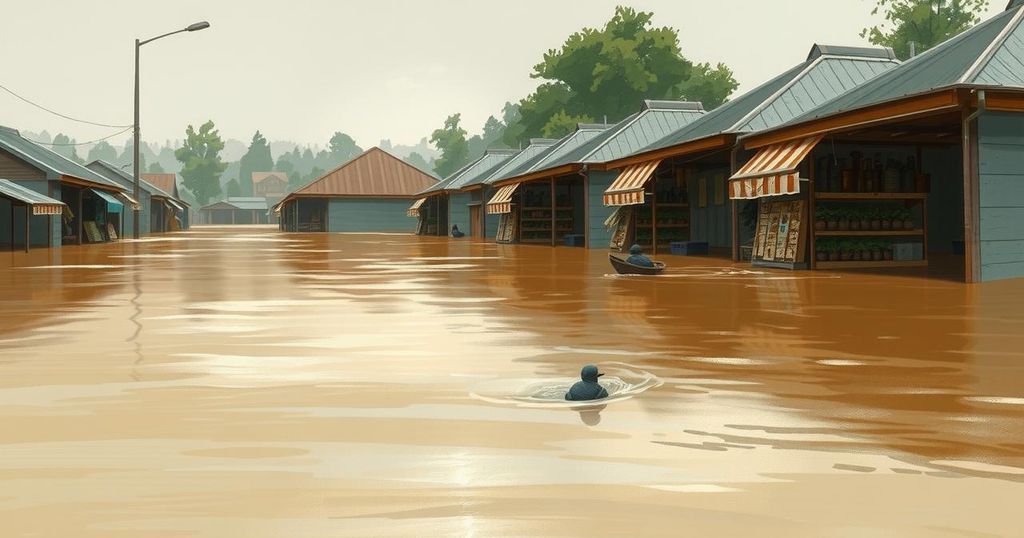Floods Kill at Least 111 as Northern Nigeria Battles Climate Change, Dry Spells, and Heavy Rainfall

Flooding in northern Nigeria’s Mokwa has led to at least 111 deaths, with expectations for the toll to rise. The area is grappling with prolonged dry spells and excessive rainfall due to climate change. Urgent calls for flood-control infrastructure have surfaced as communities struggle to manage the disaster’s aftermath.
Abuja was struck by devastating floods that claimed the lives of at least 111 individuals, particularly hitting the market town of Mokwa in northern Nigeria. Officials anticipate that the number of fatalities could rise. The Nigerian Hydrological Services Agency has yet to provide specific rainfall measurements from early Thursday morning when the disaster struck, as torrential rains descended upon the area, located over 180 miles away from Abuja.
Communities in this region face a worrying reality: prolonged dry spells, coupled with climate change, have intensified the impact of excessive rainfall, leading to catastrophic flooding during the brief wet season. Images and videos on social media show flooded neighborhoods and houses, with just the rooftops peeking out above the muddy waters. Residents waded through waist-deep water, desperately trying to save possessions or assist those in need.
As rescue efforts continue, Niger State emergency agency spokesman, IIbrahim Audu Husseini, reported that there have been more bodies discovered as operations progress, indicating that the death toll might rise further. Mokwa serves as a crucial hub for commerce, where traders from southern Nigeria purchase produce from northern farmers, emphasizing the town’s significance.
Local government officials expressed urgent concerns regarding flood prevention measures. Jibril Muregi, the chairman of Mokwa’s Local Government Area, spoke to the local news outlet Premium Times, stressing that flood-control infrastructure had been sorely needed for some time. “This critical infrastructure is essential to mitigating future flood risks and protecting lives and property,” he emphasized.
Earlier this September, northern Nigeria had already faced severe flooding linked to torrential rains and a dam collapse in Maiduguri, resulting in at least 30 deaths. The ongoing humanitarian crisis, exacerbated by the Boko Haram insurgency, makes the recent flooding especially tragic as millions remain displaced and in need of urgent assistance.
The devastating floods in Mokwa have raised grave concerns about the impact of climate change and the urgency for flood-control measures. As the rescue efforts unfold, the potential for further casualties looms large. This tragedy highlights not only the immediate outcome of the flooding but also underlines the historical need for better infrastructure to prevent future disasters.
Original Source: www.news4jax.com






